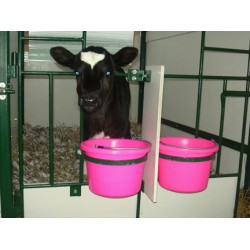Here are all the facts you need to know about Caseous Lymphadenitis
· Caseous Lymphadenitis also known as “CLA”
· Chronic Contagious disease in sheep
· More likely to be see in older sheep
· Economic losses result from ill-thrift, carcase trimming, carcase condemnation & reduced flock and breeding stock sale value.
· CLA is most commonly found in Australia & the USA but is making headway in the UK
· The CLA disease is caused by the bacterium Corynebacterium pseudotuberculosis = Highly Infectious
· Can survive in the environment for long periods of time
· Rarely seen in the UK thankfully, CLA organisms can cause infections in humans. Care must be taken when handling infected livestock
· Infection is caused by bacteria entering through cuts and scratches
· Shearing / clipping is a big risk factor for infection, cutting tools must be well disinfected pre and post use to minimise infection
· CLA looks like abscess in the lymph nodes and can be visibly seen under the skin especially on the neck of the animal
· If abscess rupture, they contain thick, cheesy pus – each gram of pus contains millions of highly infectious bacteria which can be passed on from sheep to sheep
· Infection will most likely spread to other organs of the animal such as liver, lungs & heart
· In severe cases abscesses could interfere with rumination causing to severe weight loss
· Research has shown according to some tests that animals with CLA in the lungs can pass on infection through coughing up and spreading infected matter into the environment
· There is no treatment in the UK
· Animals found with suspicious lumps should be isolated and immediate veterinary attention sought
· Quarantine bought in animals for as long as possible the advice is 2 months but most systems will not have the facilities
· Cull infected animals
· Hygiene to be top spec especially cutting tools such as shears
· Older animals to be handled last as older stock is more susceptible to disease
· If such disease is to get within your flock an autogenous vaccine can be made, this vaccine can only be used on your flock. You can only obtain by permission from the VMD - Veterinary Medicines Directorate for a special import of Glanvac from Zoetis Australia via your Vet
Click here for further information and advice on Sheep related Health Problems, please click here. Tale care of your flock with our reputable, high quality Sheep Health Care Products.




